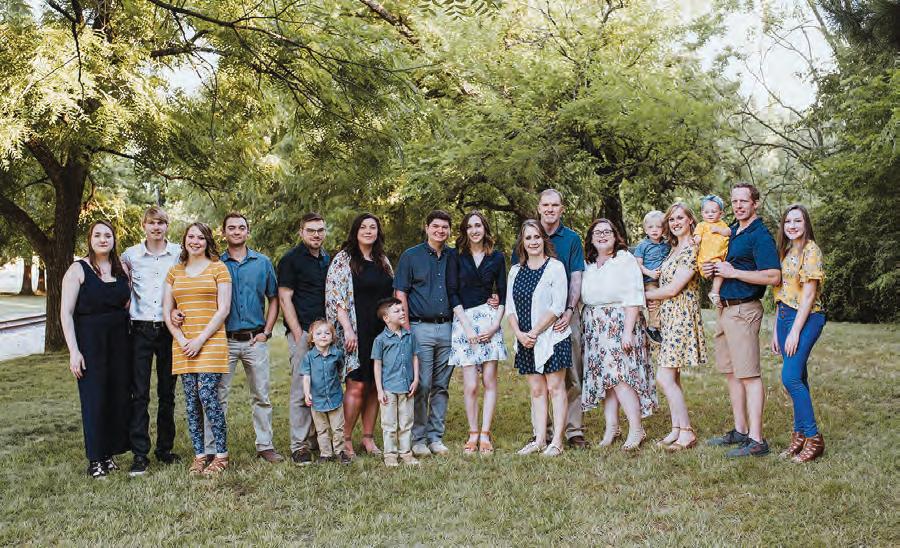
4 minute read
University Changes
ON CAMPUS
University Reorganizes for Efficiency, Collaboration, and Savings
In April 2021, UAFS Chancellor Dr. Terisa Riley announced the culmination of months of research, discussion, and discovery: A realignment in university structure meant to streamline operations and yield $1.2 million in annual savings or new revenue.
UAFS moved from a fi ve- to a three-college model and the adoption of a cohesive Center for Student Success and Retention. The new colleges, the College of Health, Education, and Human Sciences; the College of Business and Industry; and the College of Arts and Sciences represent a modern approach to strategic cross-disciplinary education and an alignment of resources and professionals who share goals and vision for their students.
Though the cost savings were signifi cant, Chancellor Riley, Provost Georgia Hale, and the committees who charted the reorganization accomplished a tremendous feat, especially during a global pandemic: They kept every individual working at UAFS employed without a reduction in salary or demotion.
Because the faculty and staff who make the student experience so unique were retained, students likely noted minimal changes beyond changes to the names of the academic colleges conferring their degrees.
The entire university had opportunities to contribute to the process that led to realignment and budget assessment throughout fi scal year 2020. Faculty, staff , and student representatives served on six budget subcommittees to evaluate implications and strategies for revenue generation, institutional and instructional technology, campus facilities, student engagement, benefi ts and compensation, and organizational structure.
Subcommittees presented recommendations through open, all-campus Zoom conferences, and fi nal recommendations were submitted to the chancellor by the UAFS Budget Council.
New Dean to Lead College of Health, Education, and Human Services
Dr. D. Antonio “Dean” Cantu assumed the position of Dean of the College of Health, Education, and Human Sciences on Feb.1. The search for the new head administrator had been underway since June, led by the ACES (Academic Career and Executive Search) national search fi rm.
“I am very pleased Dr. Cantu has chosen to come to UAFS as the inaugural dean of the College of Health, Education and Human Sciences,” said UAFS Provost Dr. Georgia Hale. “His broad experience includes leading the successful merger of multiple departments, which will be very valuable as he works with departmental leadership, faculty, and staff within this newly formed college.”
“I am honored and humbled to be selected as the inaugural Dean of the College of Health, Education, and Human Sciences at the University of Arkansas – Fort Smith,” shared Cantu. “I am truly grateful for this opportunity to work together with the extremely dedicated and exceptionally talented faculty and staff.”
Cantu said he most looks forward to working collaboratively with the leadership team, faculty, staff, community partners, and alumni.
“Collaboration is essential to building upon the rich tradition of excellence in each of the college’s unique programs, and in working to provide our students with the best educational experience possible to prepare them for their respective professions that are focused on caring for the physical, mental, social, and educational needs of our communities,” he said. “Indeed, the pandemic serves to remind us all of the critical importance of this charge, and just how essential these professions are in our society.”
“In addition, as a fi rst-generation college student, I was attracted to UAFS because of its rich history – from its early twentiethcentury origins as a junior college to the role it plays today as a university in the twenty-fi rst century – in serving students from a variety of diverse backgrounds, including from underrepresented and underserved populations.”
Dr. Cantu currently serves as the associate dean and director for the Department of Education, Counseling, and Leadership at Bradley University, where he oversaw strategic initiatives including the merger of two distinct academic departments into one cohesive unit and the development and implementation of a fi ve-year departmental strategic plan.
He also currently serves as a Research Fellow in the Future Institute Research Center.










